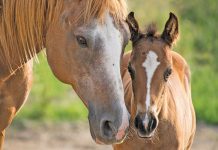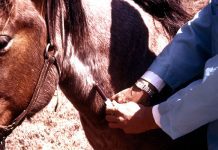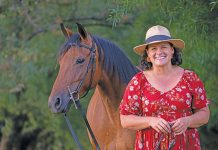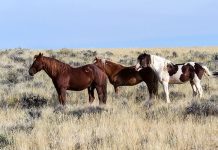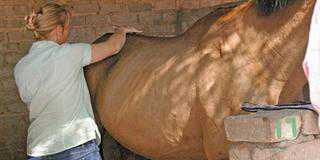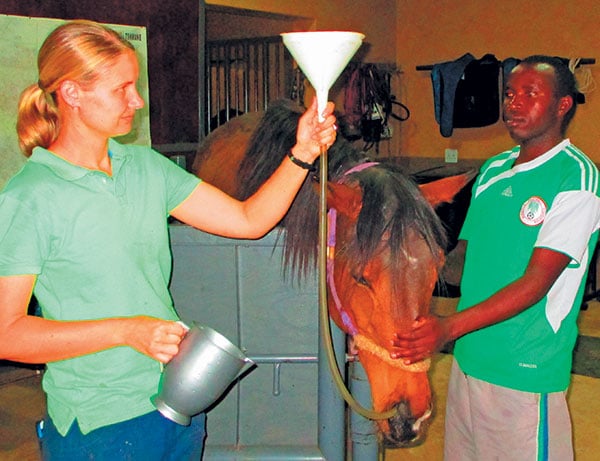
Choke, to use the medical term, is a fairly common condition in horses and if treated promptly, it has few lasting effects.
The symptoms are frightening, however, as a long drool of dirty water spools out of the horse’s nostrils and mouth. Horses sometimes panic and cough violently, or throw themselves about, showing signs similar to a violent episode of colic. Mostly, though, they stand in a corner with their head down.
Horses normally chew their food until it forms a soggy bolus (lump). This is pushed to the back of the mouth with the tongue, then swallowed. In older horses with irregular, sharp or missing molar teeth, a lump of hay may not be sufficiently chewed and get stuck on the way down the oesophagus to the stomach.
Lumps of carrot or apple may also cause choke; it is better to cut, break or even bite these into small pieces before offering them to a horse.
Feeding in steps
Another cause of choke, common at present, is gulping down concentrate too quickly. Often, horses will graze on drought-stricken pasture, then gallop
back to the stable to eat pellets. Because they are so hungry, however, they fail to chew the pellets properly before swallowing them, and this causes an obstruction.
It is good practice to a place a full hay-bag and water bucket in all the stables, then feed concentrate only once the horses have settled down, drunk some water and chewed on the hay.
Young foals also sometimes get choke when they try to eat bedding made of shavings or straw.
Yet another cause is allowing a horse to eat too soon after anaesthesia, when the oesophagus is partly paralysed.
In many cases, the lump of food can be seen halfway down the oesophagus on the left side of the neck, but it can also get stuck much further down, close to the stomach valve.
The worst-case scenario is when a horse chokes while out in the veld, as it can die of dehydration in two to three days.
What to do
Although the obstruction sometimes comes loose on its own, it’s a good idea to get hold of a vet immediately. If you wait too long, the oesophagus may rupture or become badly injured.
Box the horse through to the vet. This is certainly cheaper, especially after hours, and there is a chance that the bolus can be shaken loose during the journey.
The vet will begin by injecting a tranquilliser and a muscle relaxant. Then he or she will pass a stomach tube through one of the horse’s nostrils and down its oesophagus, hold the head lower than the chest, and pour water and a lubricant down the tube to flush away the obstruction.
The vet may also insert an endoscope to study the blockage. This may require general anaesthesia. Antibiotics and anti-inflammatories are often used to prevent the damaged oesophagus from swelling closed and also to prevent inhalation pneumonia.
To prevent a recurrence, water should be mixed with the horse’s feed to make a slurry, and the horse should be hand-grazed on soft green grass for a few days.
Dr Mac is an academic, a practising equine veterinarian and a stud owner.


